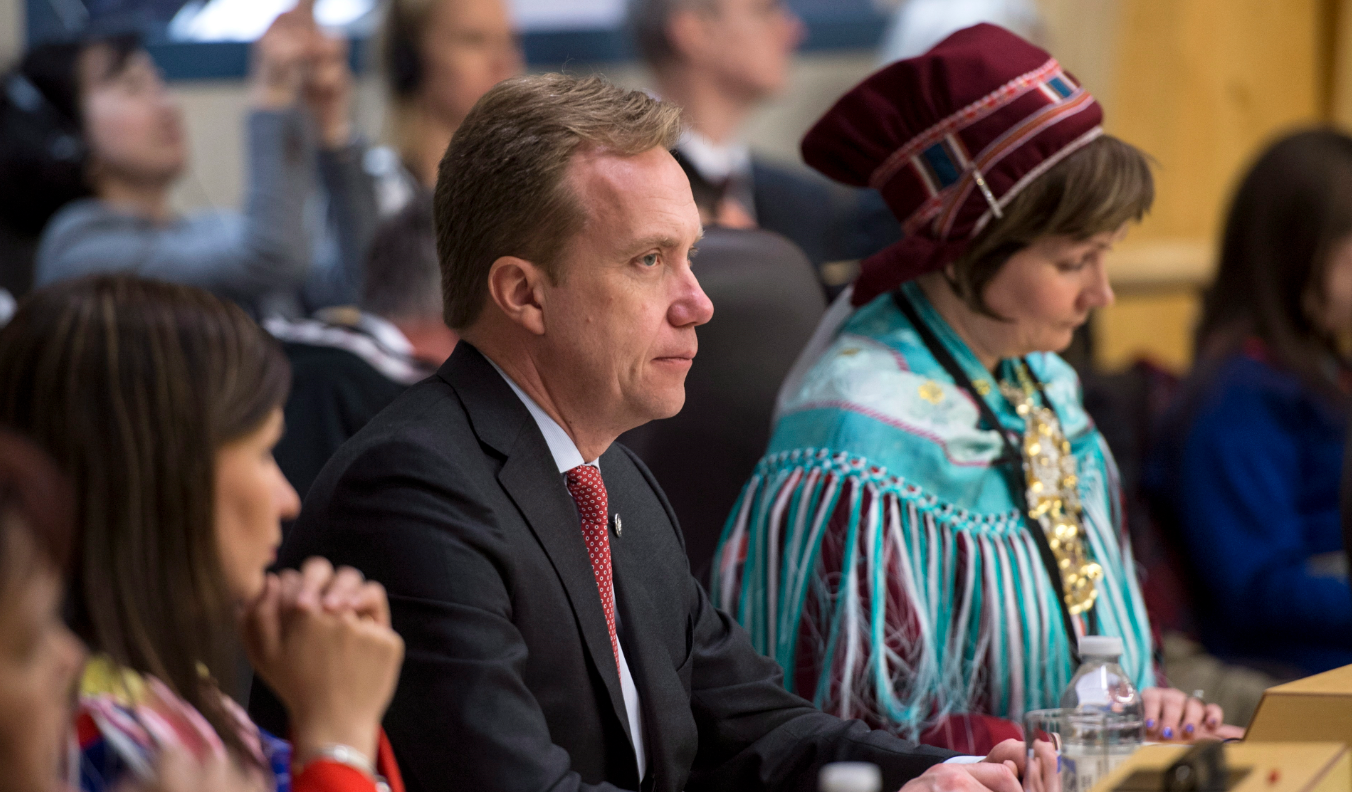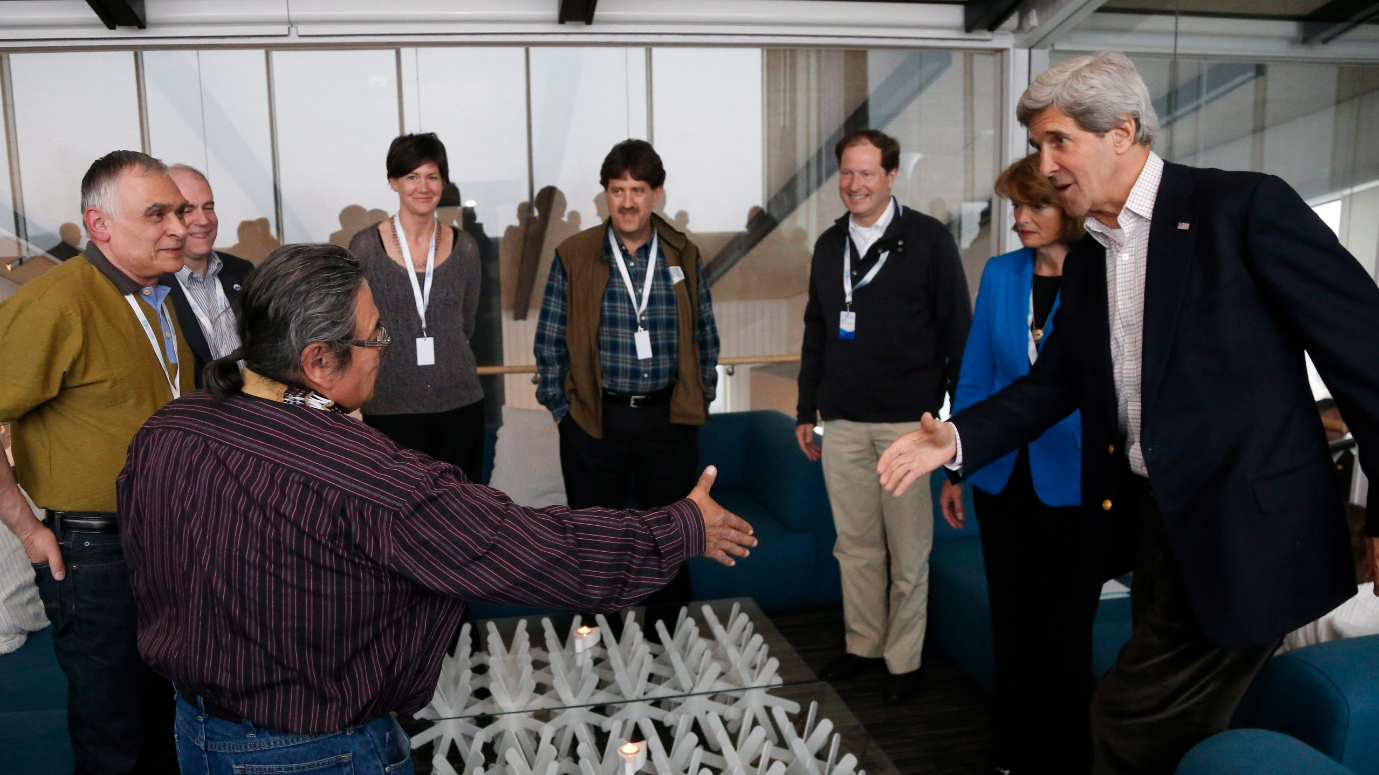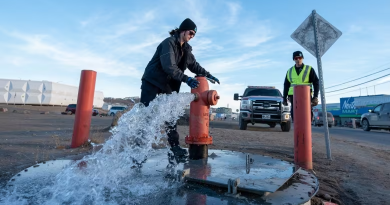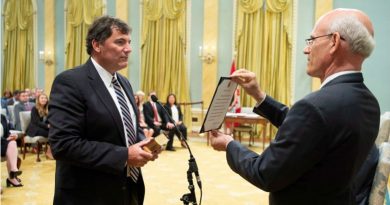Indigenous leaders warn international community, continued tensions with Russia will harm Arctic

Arctic indigenous leaders cautioned the circumpolar community that the continued intrusion of geopolitical tensions with Russia into the Arctic Council could negatively impact the wellbeing of Arctic peoples.
“In times of geopolitical instability, and changing economics, the indigenous peoples’ communities will be the first to be negatively affected,” said Áile Javo, president of the Saami Council , the group representing indigenous reindeer herders whose traditional territory of Sapmi stretches through Arctic Norway, Sweden and Finland into northwest Russia.
“We need to safeguard the unique work of the Arctic council,” she said during her remarks at the Arctic Council ministerial on Friday in Iqaluit, the capital of Canada’s eastern Arctic territory of Nunavut. “ We need to continue to cooperate as one Arctic family learning from each other and respecting each other.”
‘Cooperation is crucial’
The Arctic Council is made up the world’s eight circumpolar nations: Russia, United States, Canada, Denmark-Greenland, Iceland, Norway, Finland and Sweden.
It’s is also made up of six permanent participants representing the Arctic’s indigenous groups: the Arctic Athabaskan Council, Aleut International Association, Gwich’in Council International, Inuit Circumpolar Council, Russian Association of Indigenous Peoples of the North and the Saami Council.
“The representatives around this table represent the generation that has seen the Cold War come to an end,” Javo said when she began her remarks. “The Saami Council has seen the relationships with our brothers and sisters in all countries flourish after decades of separation. Also, the Arctic Council was developed during that time as a cooperation that we feel is crucial for us.”

Disappointment over absence of Russian minister
Javo’s comments echoed those of other indigenous leaders at the meeting.
“International co-operation in the Arctic is important to those of us who live in the North,” said Michael Stickman, International Chair of the Arctic Athabaskan Council during his remarks.
“Decision-makers in Washington DC, Ottawa and Moscow, and our Asian and European observers, should understand this. We are not naïve, but this Council and its individual members should shield our co-operation from broader political and geopolitical rivalries.”
In his remarks, Stickman also expressed his disappointment that Sergey Lavrov, Russia’s foreign minister, was not at the meeting and pointed out that Lavrov had “attended more Arctic Council ministerial meetings than anyone else around this table.”
Russia sent environment minister Sergey Donskoy in Lavrov’s place.
Swipe at Russia?
Canada’s prime minister Stephen Harper has taken a strong line against Russia over its actions in Ukraine.
However, the government, and Canada’s Minister for the Arctic Council Leona Aglukkaq, have been criticized for allowing the issue to seep into Arctic relations.
Last year , Canada boycotted an Arctic Council meeting in Moscow saying it was to take ‘a principled stand against Russia.’
During Friday’s meeting of circumpolar ministers and the permanent participant leaders, Aglukkaq neglected to mention Russia in remarks while acknowledging the U.S. and Nordic countries.
Related stories from around the North:
Canada: The Canadian Arctic Council Ministerial – What to Expect, Blog by Heather Exner-Pirot
Denmark: Nordics to step up security cooperation on perceived Russian threat, Yle News
Finland: Survey – More than half of reservists in Finland pro-Nato, Yle News
Norway: Peace and stability crucial for Arctic economy, Barents Observer
Russia: Majorities in Arctic nations favor cooperation with Russia, Barents Observer
Sweden: Russia concerned by Finland, Sweden moves towards closer ties with NATO, Radio Sweden
United States: Alaska stands to benefit as US takes reins of Arctic Council, Eye on the Arctic



